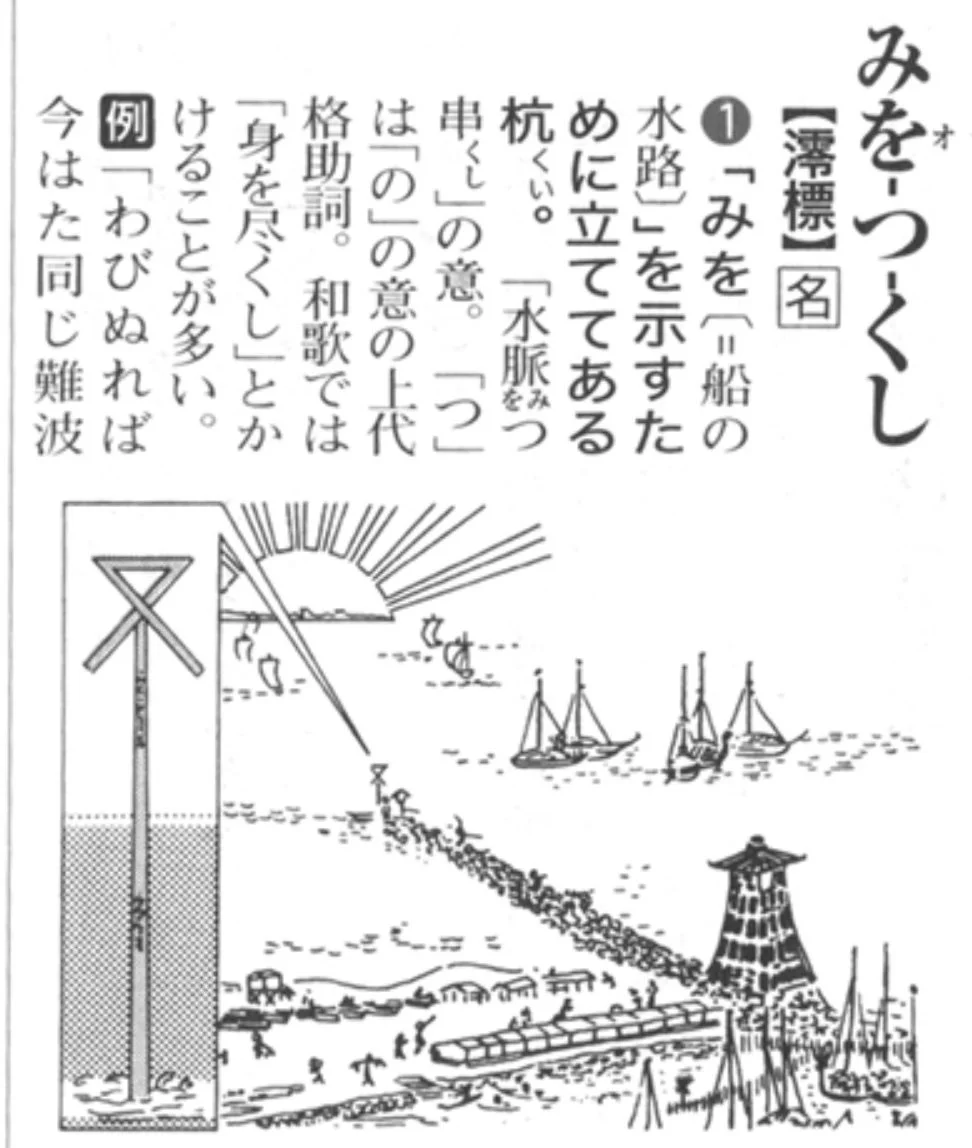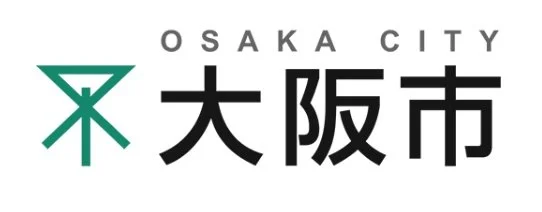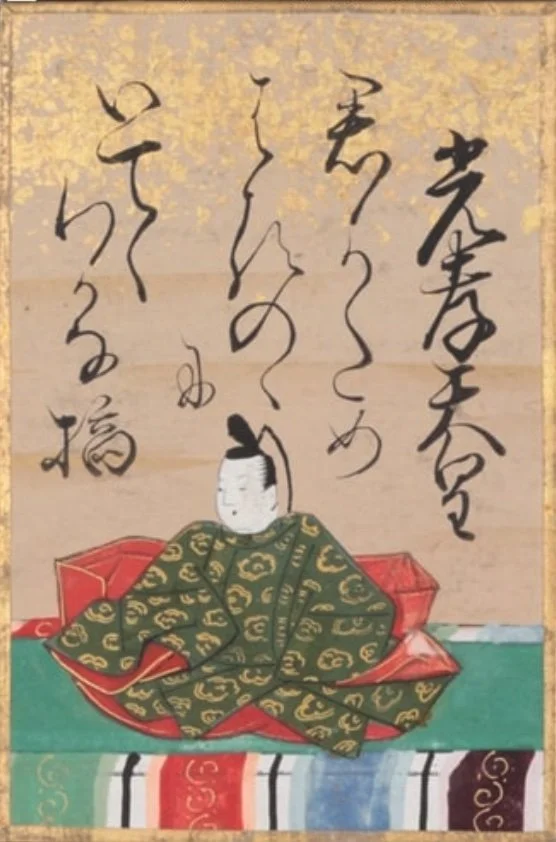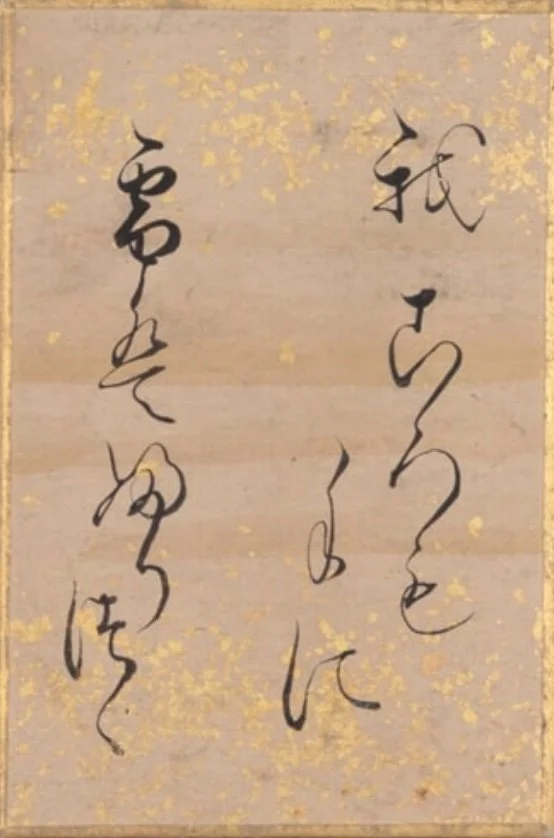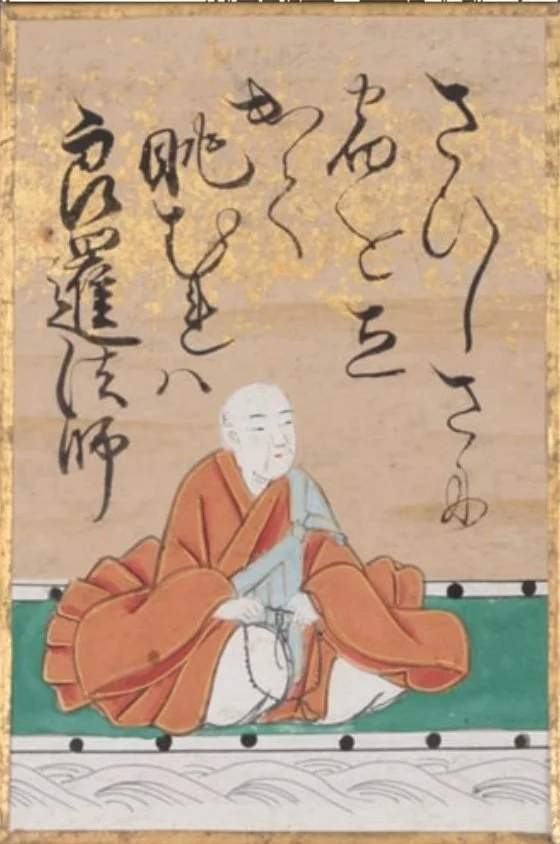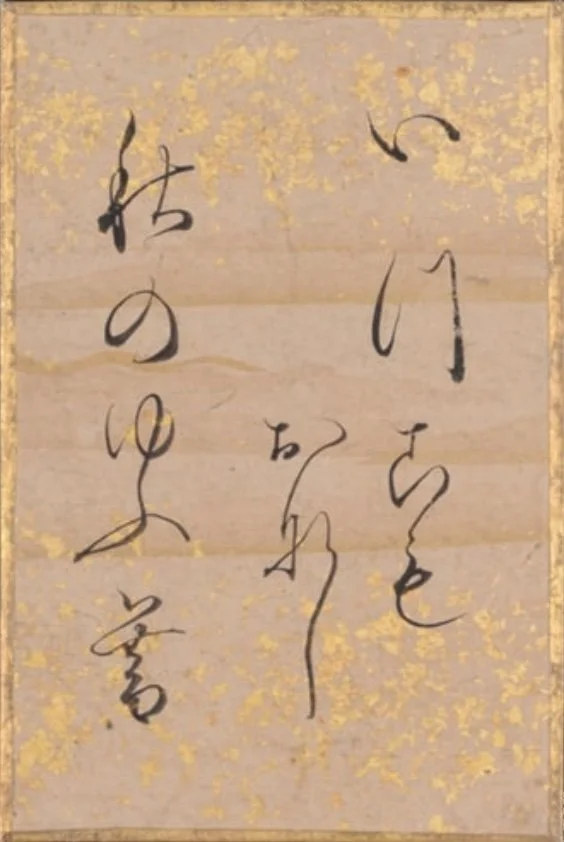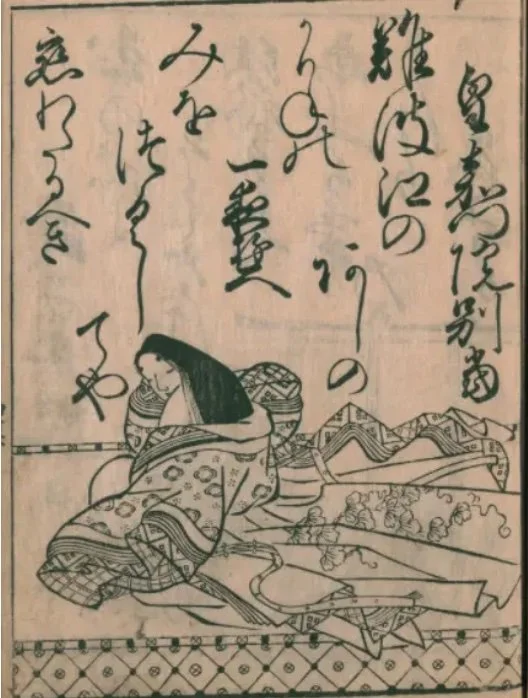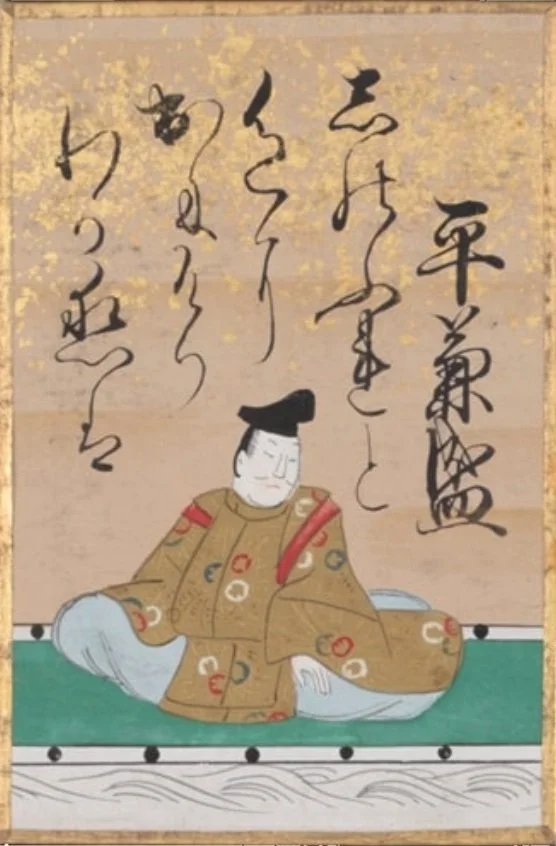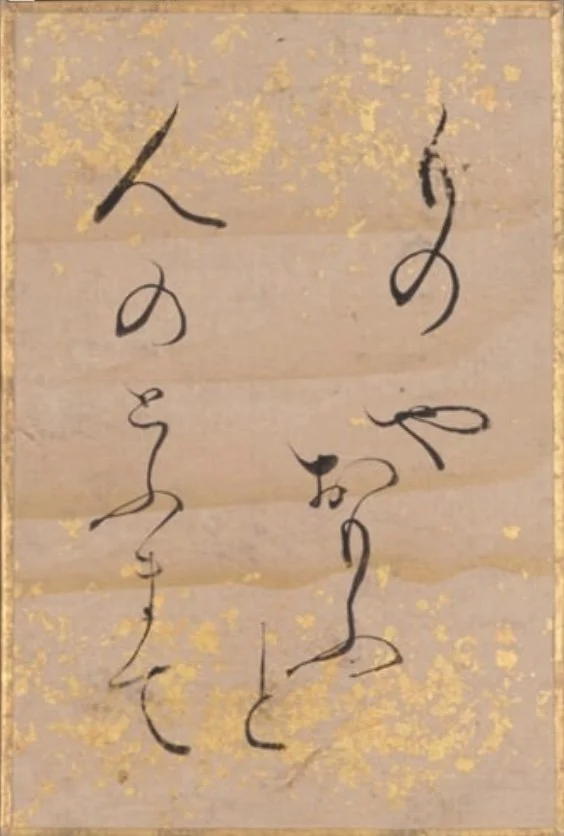Releasing Date: June 20th, 2024
Composer and Conductor: Michael Patterson
Vocal and Producer: Yuwan Zhang
Piano: Michael Chertock
Alto Flute: Jennifer King
Harp: Rachel Miller
Recording Engineer: Kim Pensyl
Mixing and Mastering Engineer: Chengchao Josh Huang
Painting: Setsuko Lecroix
Cover Calligraphy: Xujia Dai
Japanese Consultant: Hitomi Hiraoka
Content on this page:
Notes from the composer
Notes from the vocalist
Lyrics and translation
About the composer
About the vocalist
Research Reference
Notes from the composer:
The song cycle "Love's Long, Long Season" was originally written for piano and voice in 2012. These pieces reflect themes of "unreachable love," encompassing imagery such as autumn leaves, falling snow, plum and cherry blossoms, the moon's phases and seasons, the rustle of leaves, and the sounds of cicadas, frogs, cuckoos, and nightingales. Themes of clandestine meetings with lovers, famous beauty spots, court ceremonies, the quiet of a monk’s hermitage, the deaths of rulers, patrons, and mistresses, and the poem written by the poet on the eve of his death, as described by Rexroth, are also woven into the cycle. Each poem incorporates patterns of dance gestures, creating a rich landscape of images to represent musically.
When I was very young, a Sophomore at the College-Conservatory of Music, one of two books I purchased, independent of my college textbooks, was “A Selection of Poems” by E. E. Cummings. The second was an unusual book titled “The Zen Koan, its History and Use in Rinzai Zen” by Isshu Miura and Ruth Fuller Sasaki, with “Reproductions of Ten Drawings” by Hakuin Ekaku. Both these books were “keystones” and informed my poetic outlook over the years. My interest in the short forms of Japanese Haiku, Zen, and the culture of Japan only increased. Once I began composing music to these beautiful poems from the Japanese, I decided to take on the challenge of setting them in the original language.
The translations in Kenneth Rexroth’s remarkable book, "One Hundred Poems from the Japanese," were brilliant and practical, but I felt that the short phrases would be more aesthetically pleasing in their native language. With this goal in mind, I began consulting many Japanese singers I knew at the Mannes School of Music, where I was teaching, as well as several instrumental artists I was working with in NYC. They provided valuable insights, even pointing out that some phrases in the poems were no longer in use. I also read Rexroth’s meticulously researched introduction, which offered an invaluable historical overview of the origins and practice of singing and speaking the poems. Inspired by Rexroth's and Arthur Waley’s approaches, I decided to attempt my own translations, aiming to capture the essence of the poems rather than settling for word-for-word translations.
The key turning point in creating a performance and recording was to find the right singer who was classically trained, but not overly “operatic. Someone who could sing simply, and yet be expressive. Yuwan Zhang fit that part of my concept. She also added much to the translations since she knew the language well. Finding the artist, pianist, Michael Chertock was a blessing, his musicality and ability to sense what was needed in phrasing and articulation was a great help. The marvelous interpretations by Jennifer King, whose tone I love, made her alto flute sound at times, almost like a bamboo flute, and the graceful and musical playing of harpist Rachel Miller made this the perfect trio to record these pieces.
A personal note of thanks to Kim Pencil, whose perfect sound engineering laid a solid foundation for the mixing. Many thanks to Josh Huang for patiently adjusting the mixes and shaping the final result. And a final personal note of thanks to all who supported this project with your finances and encouragement.
The piano and vocal version of the songs was completed in 2012. The version for piano, harp, alto flute, and mezzo-soprano was completed and recorded in 2024.
- Michael Patterson, 2024
Notes from the vocalist:
It was a pleasure to get to know these beautiful poems and interpret their ancient emotions through my singing. Performing these songs connected me to the past and allowed me to bring the music into the future. I hope my interpretation conveys these timeless scenes to the audience. This is the magic of music: creating a bond that transcends time.
In the first song, according to my research, Emperor Kōkō wrote the lyrics on the seventh day of the lunar new year. Coincidentally, our recording session for the album also took place on the seventh day of the lunar new year in 2024. Everything came full circle. I believe Emperor Kōkō would be delighted and surprised to know that his poem was set to music and recorded many years later on the same day he originally wrote the lyrics.
The essence of Japanese art lies in its indirect interpretation of "love" and "longing" through various media. Their love is seen in the moon's gaze, their loneliness in the autumn air, their tranquility in the snowy ground, their resolution in the river’s wave, and their hopes in the new sprouts. The key is the subtlety and the journey of the audience, or the Aite (相手), to discover these meanings for themselves. Thus, this album is named “長々し時節,” the ancient poetic way of writing “The Long Long Seasons”. The pronunciation of “長々し”, “naga naga shi”, could also be written as “長流し”, and that changes the title meaning to be “The Long Flowing Season”, which matches the heart of waiting for the beloved ones. These songs and poems are like letters, with the subtitle “儚き君に,” which means “To the Unreachable You.”
This album selection offers diverse perspectives, spanning from emperors to monks and men to women, capturing a wide range of emotions about attachment to others. Researching the details in ancient Japanese was an enjoyable journey, allowing me to learn about the culture and interpretive methods that were previously unfamiliar to me. These poems embody the essence of their time and culture.
While singing the first song, I was thinking of the green of the sprouts and the white of the snow. I saw a person walking alone in a distant field, and as the scene zoomed in, I noticed them crouched down, searching for green to pick while the snow gradually fell. In the second song, I interpreted the changes in Lady Kasa’s inner life by imagining myself on an ancient, quiet night, suddenly waking from a dream, and reflecting on grimness, gentleness, and resolution. I aimed to create a balance between tenderness and fear, as this song conveys the true feeling of unrequited love (片思い). She regards her beloved as the sword she holds, but she can no longer distinguish between dream and reality, leading to a mixture of happiness and sadness. In the third song, I placed myself in Monk Ryozen’s perspective. I saw the dusk painting the autumn mountains red and gold and felt the loneliness of my life repeating every day. I want to find a way out but don't want to break the peacefulness. Perhaps I have already grown accustomed to it.
In the fourth song, the tenderness reveals that it is from a woman’s perspective. The lyricist, the Attendant to Empress Koka, uses a metaphor to compare brief love to the cut roots of reeds in the Naniwa River (難波江). She employs the term “ひとよ” (一夜, a night) to highlight the brevity of the cut roots of the reed. The last word, “わたる” (wataru), is understood today as “to cross” and written as “渡る,” but in this poem’s context, it could be interpreted as “long and flowing.” While singing, I reflected on the feeling of being unable to let go and looking back, which then transformed into devotion and resolution. In the last song, I aimed to convey the contrast between concealment and the subtle fear and surprise of being seen, capturing the heart-skipping moment of inner emotional fluctuation while maintaining calm on my face.
I also found out that in the fourth song, the original meaning of “みをつくし” (miotsukushi, 澪標) referred to markers used in the river, and it was famous in the Naniwa River. Today, Osaka City uses Miotsukushi as the symbol of the city, as it has a place called Namba (難波, same spelling but different pronunciation), and the real Naniwa River is nearby. In ancient poetry, "みをつくし" was used to mean "devotion," similar to its use in the fourth song, where it is written as “身を尽くし” (same pronunciation but meaning “devotion” based on the characters).
It was a great honor to collaborate with Professor Patterson, and I am deeply grateful to my parents for funding this opportunity. Thank you, Josh, for patiently mixing the songs, and thank you, Kim, Michael, Jennifer, and Rachel, for recording these delicate pieces. My heartfelt thanks to my friend Xujia for her breathtaking calligraphy, which means so much to me in this album. Thank you, Setsuko, for authorizing us to use your stunning paintings filled with Reiki. Thank you, Ms. Okazaki (a.k.a. Mimi Sensei), for teaching me Japanese and generously supporting me with all my cultural and translation questions.
This album is a beautiful mixture of cultures. The composer, Professor Patterson, is American and is attracted to Japanese culture. I was born and raised in China and have been influenced by Japanese culture while growing up. All of these poems are ancient Japanese. The fusion of Professor Patterson's unique Western musical perspective with these timeless Eastern texts creates a captivating cross-cultural dialogue. The melodies reflect a delicate balance of traditional Japanese elements and innovative Western techniques, resulting in a soundscape that feels both familiar and refreshingly new. This intricate blend highlights the universal language of music and poetry, transcending geographical boundaries and inviting listeners into a shared cultural experience.
-Yuwan Zhang
Lyrics and translation (English and Chinese translated by Yuwan Zhang)
1. 雪と春の野 Snow and Spring Field
(written by 光孝天皇 Emperor Kōkō, 830-887, included in the《百人一首》『古今集』春・21 "Ogura Hyakunin Isshu")
君がため
春の野に出でて
若菜摘む
我が衣手に
雪は降りつつ
For you,
I went out to the spring field
To pick the young greens
On my sleeves
The snow gradually fell on it.
为君
出春野采绿
雪拂袖
2. 夢 Dream
(written by 笠女郎 Lady Kasa, 奈良時代中期 mid-Nara period, around 750 CE, included in the《万葉集》"Man'yōshū")
剣太刀
身に取り添ふと
夢に見つ
何の兆しも
君に逢はむため
The sword
I held it next to my body
I saw a dream like this
What does it mean?
It's for meeting you soon
剑太刀
取于身侧
见此梦
为何兆
为逢君
3. 夕暮れ Dusk
(written by 良暹法師 Monk Ryōzen, 998-1060, included in the《百人一首》『後拾遺集』秋・333 "Ogura Hyakunin Isshu")
寂しさに
宿を立ち出でて
眺むれば
いづこも同じ
秋の夕暮れ
With the loneliness
I went out of my home
While I gaze
It's always the same
The autumn dusk
寂寥深院
门檐出
远眺一如
秋夕暮
4. 難波江 Naniwa River
(written by 皇嘉門院別当 The Attendant to Empress Kōka, 12th century CE, late Heian period, included in the《百人一首》『千載集』恋三・807 "Ogura Hyakunin Isshu")
難波江の
芦のかりねの
ひとよゆゑ
みをつくしてや
恋ひわたるべき
Naniwa River's
cut the roots of the reed
The happiness of that short night (like the cut roots of the reed from the Naniwa River)
I can devote myself and my whole life
For this love
难波江
苇残根
短如昔夜
义无反顾
一生为此恋
5. ものや思ふ Are You in Love
(written by 平兼盛 Taira no Kanemori, - 991, mid-Heian period, included in the《百人一首》『拾遺集』恋一・622 "Ogura Hyakunin Isshu")
しのぶれど
色に出でにけり
わが恋は
ものや思ふと
人の問ふまで
Even though I hide it
It still shows in my expression
My love is like being seen
"Are you in love?"
being asked by someone else
心隐于神
喜形于色
吾恋犹如
人照面
About the composer:
Michael Patterson is a Grammy (2010) and Emmy Award-winning composer. Michael’s creative output is vast including commissions and concert work for the London Symphony Orchestra, New Mexico Symphony Orchestra, Eastman Trombone Choir, Ernest Bloch Chamber Ensemble, NYRO (New York Repertory Orchestra), and the Debussy Trio, notable are the Three Pieces for Solo Violin for Judy Kang, Parallel Forms for the award-winning trombone quartet Novus and Psalm for String Orchestra and Saxophone, premiered by Eddie Daniels and the New Mexico Symphony Orchestra. His Concerto for Saxophone and Orchestra, composed for consummate artist Rick VanMatre, received several American performances in 2010/11 and was also premiered in China, in June 2012. Mike’s arrangements and original compositions have been performed by jazz legends Hank Jones, Woody Shaw, Bob Shepherd, Roland Hanna, Eddie Daniels, Marc Copland, and Phil Woods. Also, his characteristically luscious film and television scores have been heard on The Adventures of Young Indiana Jones, over fifty episodes of J.A.G. (CBS-TV), with Steve Bramson, Tiny Toon Adventures with Steven Spielberg, and the Lucasfilms’ feature, Radioland Murders. His long association and mentorship by Leonard Rosenman can be heard in his remarkable orchestration of the feature film Jurij, which premiered at the 2002 New York Film Festival.
Recent recordings featuring Patterson as producer, arranger, and composer on the IPO record label include One More: The Music of Thad Jones, Vol. I; One More: The Summary, The Music of Thad Jones, Vol. II; Mean What You Say, and Homecoming with Eddie Daniels, Brookmeyer, Hank Jones, Frank Wess, Richard Davis, Johns Mosca, Benny Golson, and Kenny Washington; Our Delight, Moody 4A and Moody 4B (Grammy Award for Best Jazz Instrumental Album, 2010) featuring jazz legends Hank Jones and James Moody. Other recordings include Concierto with jazz legend Gene Bertoncini, and various pieces for the Marc Copland Trio, including the piano concerto, (After Autumn) Reflections on Chopin with the Silesian String Quartet (Poland) and Piano Quintet. In 2008 Michael was a featured artist as part of the MOSA concert subscription series in New York. His Line Drawings appear on James Noye’s 2012 recording Imaginings. He has recently recorded a jazz/chamber music CD featuring artists Marc Copland, Sara Caswell Gene Bertoncini, and Judy Kang. Recent compositions include Subway Stories for the woodwind quintet, Catching Light for soprano sax and concert organ, Catching Light II for the Ariel String Quartet, Ave` and Esprit for flute and piano, and Five Poems from the Japanese for alto voice, piano, alto flute, and harp. Most recent compositions include Samvaad for pianist Antoinette Perry, Strange Beauty, for Miranda Cuckson, and Three Prayers for Sara Andon, Peggy Baldwin, and Bryan Pezzone. In The Still of the Night-the Music of Cole Porter, featuring Calabria Foti. And the premier of Chorale and Fanfare with the celebrated Eastman Trombone Choir, 2024. His most recent studio recording is Love’s Long, Long Season, setting of five Japanese poems for mezzo-soprano, piano, alto flute, and harp 2024.
Michael’s teaching positions have included courses in composition/film scoring at NYU and theory/composition/orchestration and business of music at the Manhattan School of Music/ Michael was a resident artist and film scoring and composition faculty at NYU for 15 years at the annual ASCAP/NYU Film Scoring Seminar. He received an MM in Composition- Jazz Studies and Contemporary Media, from the Eastman School of Music (’80) and a BM in composition from the University of Cincinnati College-Conservatory of Music, and his composition/piano teachers have included Felix Labunski, Paul Cooper, Manny Albam, Rayburn Wright, Bill Dobbins, Antoinette Perry, Marc Copland, Duane Tatro and Leonard Rosenman.
michaelpattersoncomposer1@gmail.com
https://soundcloud.com/patterson-urchinmusic/tracks
https://michaelpattersonco.wixsite.com/website
About the vocalist:
Hailed as "having an appealing musicality and much flair" by the New York Concert Review, Yuwan Zhang, mezzo-soprano, is ready to enchant audiences worldwide with captivating performances, exceptional vocal talent, and creativity in composition. Born and raised in Chengdu, China, Yuwan came to the United States in 2016. In 2020, Yuwan graduated with a Bachelor’s degree in Music and Biology from Goucher College, with Honors in Music. Yuwan earned a Master of Arts in Teaching program at Goucher College in May 2023 and is currently studying in the Master of Fine Arts in Screen Scoring program at Columbia College Chicago.
Yuwan Zhang is a screen music composer, a vocal coach, and has received a Maryland Educator Certificate. Yuwan was the director and conductor of the Chinese youth choir and adult choir at Baltimore Chinese School. Yuwan is trained as a classical music vocalist and the performance experience includes solo voice recitals, orchestra solo vocalist, jazz ensemble vocalist, choir leading singer and chamber singer, a cappella group singer, and pop singer. In December 2022, Yuwan made a solo debut at Carnegie Hall. Yuwan is the first place winner of the Classical Repertoire Category of American Protégé International Vocal Competition, the first place winner in Category Advanced Voice, Baroque, of U.S. International Open Music Competition, gold prize winner of Baroque B Category, Romantic B Category, Professional Category, and winner of Great Interpretation Special Prize in Cambridge Music Competition, the third prize winner of Young Soloist International Music Competition, and the Second Prize Winner of The North International Music Competition.
In 2023, Yuwan released the first album Move Forward Like the Seasons, and collaborated with pianist Jeffrey Chappell. In June 2024, Yuwan will release the second album 長々し時節/Love’s Long Long Season, collaborating with Grammy and Emmy Award winner Michael Patterson. Yuwan studied jazz performance with Jeffrey Chappell and choral performance with Daniel McDavitt during her undergraduate, and vocal music performance teachers include Annie Gill. Yuwan studies film composition with Kubilay Uner, Lee Sanders, and Kazimir Boyle.
Coming from a multicultural and musical background, Yuwan has the instincts and enthusiasm to learn different languages. For Yuwan, learning languages is the key to opening up the gates to different parts of the world map and the cultures behind it. Besides speaking Mandarin Chinese as Yuwan’s native language, Yuwan is fluent in English and has passed the Japanese Proficiency Test Level N2. Yuwan has learned Cantonese, Korean, and Arabic, and music repertoire includes German, Italian, and French. In the spare time, Yuwan enjoys photography, traveling, baking, collecting antiques, learning ancient Egyptian hieroglyphics, Tarot reading, and writing on the WeChat Public Channel微信公众号:鱼丸的平行世界.
Research Reference:
源氏物語(澪標)http://wakaotazunete.cocolog-nifty.com/blog/2008/07/post_66c2.html
ちょっと差がつく『百人一首講座』光孝天皇(15番) 『古今集』春・21 https://ogurasansou.jp.net/columns/hyakunin/2017/10/17/605/
第168話笠女郎 https://kakuyomu.jp/works/1177354054888007402/episodes/1177354054890010846
万葉集入門 http://manyou.plabot.michikusa.jp/manyousyu4_604.html
ちょっと差がつく『百人一首講座』良暹法師(70番) 『後拾遺集』秋・333 https://ogurasansou.jp.net/columns/hyakunin/2017/10/17/1339/
ちょっと差がつく『百人一首講座』皇嘉門院別当(88番) 『千載集』恋三・807 https://ogurasansou.jp.net/columns/hyakunin/2017/10/17/1384/
百人一首88番 https://evrica.me/liberal-arts/1132
ちょっと差がつく『百人一首講座』平兼盛(40番) 『拾遺集』恋一・622 https://ogurasansou.jp.net/columns/hyakunin/2017/10/17/1194/


